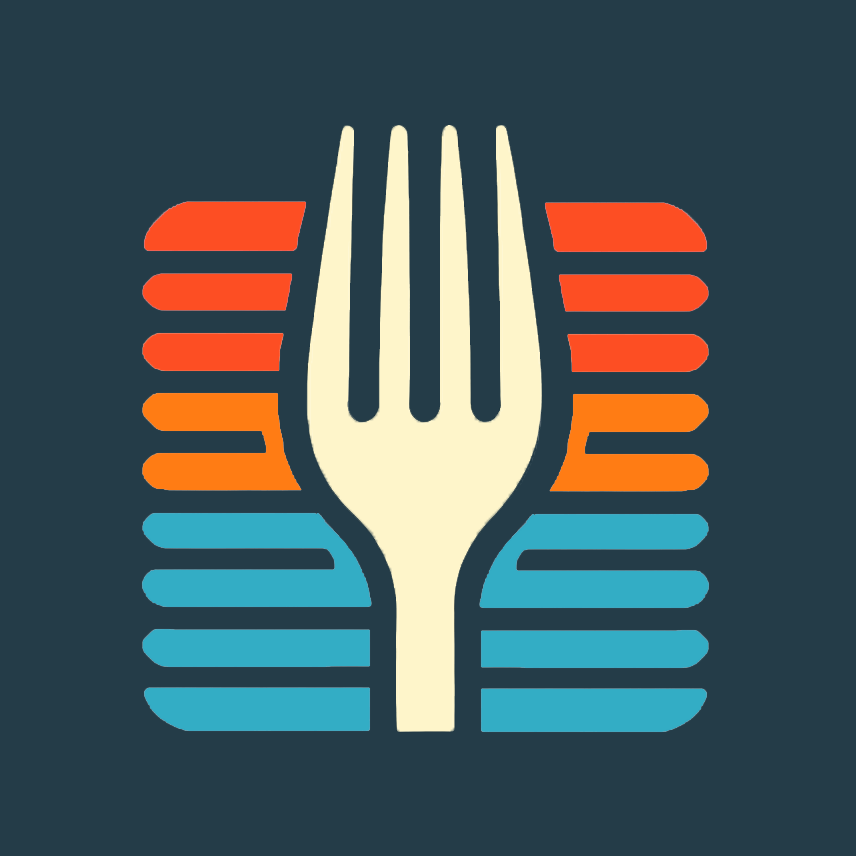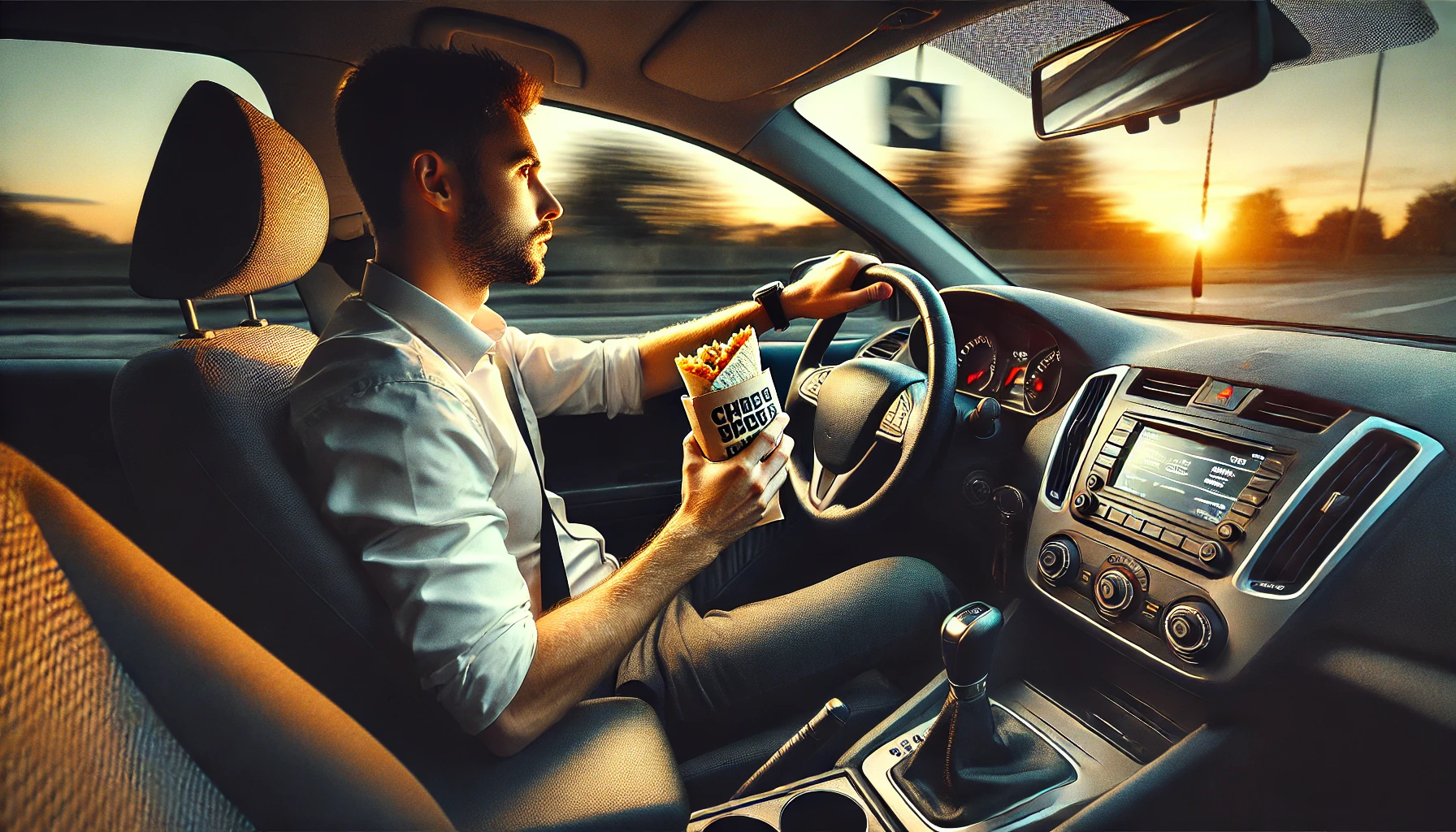What To Know
- Whether you’re on long work trips or planning a cross-country adventure, the right prep means you’ve got real food, real energy, and you don’t have to rely on a greasy burger to get you from A to B.
- Plus, who doesn’t like a bit of smugness knowing you’re munching on a homemade wrap while everyone else is queueing for overpriced sandwiches, getting frustrated as to why you didn’t go the toilet before you queued and now you’re still waiting and its getting desperate.

Key Takeaways
- Introduction: Why Meal Prep Matters on the Road
- Planning Like a Pro
- Essential Tools for Traveller Meal Prep
- The Balance of Nutrients
- Snacks to Keep You Sane
- Staying Hydrated Without the Hassle
- Avoiding the Temptations: Healthy Alternatives
- Mindset Matters: Making Road Nutrition a Habit
Introduction: Why Meal Prep Matters on the Road
Look, let’s be honest: being on the road is a breeding ground for unhealthy choices. Shitty service stations with fast food crap, petrol station snacks, and those too-tempting sausage rolls from Greggs—they’re all waiting for you. But here’s the deal: just because you’re travelling doesn’t mean you have to sacrifice eating well. In fact, a bit of prep can make all the difference between feeling like a lethargic lump and smashing through your day like dodgy street food through that comedy string vest your best friend bought thinking it’d be funny for your 30th and you swore you’d never wear…but here you are, no pants, wearing it, in the mirror, looking at yourself wondering when that grey pube graced your presence. I digress…
Meal prepping for travel isn’t just about eating; it’s about eating well while staying sane. It’s having control over what goes into your body, even when you’re far from your own kitchen. Whether you’re on long work trips or planning a cross-country adventure, the right prep means you’ve got real food, real energy, and you don’t have to rely on a greasy burger to get you from A to B. Plus, who doesn’t like a bit of smugness knowing you’re munching on a homemade wrap while everyone else is queueing for overpriced sandwiches, getting frustrated as to why you didn’t go the toilet before you queued and now you’re still waiting and its getting desperate.
In this post, we’re breaking down everything you need to know to master meal prep for travellers—from planning and tools to recipes and mindset. By the time we’re done, you’ll have a game plan that fits even the busiest schedule, keeping you fuelled up with the good stuff, no matter how many miles you clock…and of course, when’s a good time to use the loo (spoiler alert – its when you need to go you silly bastard).
Planning Like a Pro
Alright, here’s where the magic starts. Planning is everything. When it comes to being on the road, a little forethought can save you from that desperate motorway services scramble. You need a game plan that’s straightforward, efficient, and, crucially, sustainable.
Key Steps for Planning
- Meal Prep Calendar: Get yourself a rough meal schedule—nothing fancy, just a simple plan of which meals you’re gonna need each day. It doesn’t need to be full of exotic dishes. Just list: Lunch, Dinner, Snacks. Done.
- Batch Cooking: Save time and cook in batches. Trust me, cooking a pot of something decent on a Sunday will keep you sane on those long-haul journeys. Soups, curries, or even just a massive batch of grilled chicken—it all works. Keep it simple and keep it tasty.
- Portion and Pack Smart: Once you’ve cooked, it’s all about portions. Grab some decent containers and split out your meals for the road. Those little boxes are going to be your lifeline, keeping you away from petrol station disappointment.
Essential Tools for Traveller Meal Prep
Once you’ve got your planning sorted, it’s time to get the right gear. Think of it like packing for a camping trip—you wouldn’t set off without the tent poles, right?
Essential Tools
- Reliable Storage Containers: Invest in some proper food storage containers. They don’t need to be fancy, but they do need to seal tight.
- A Decent Cool Bag: If you’re carrying fresh food, you need to keep it cool, especially in the summer.
- Portable Cutlery and Napkins: You’d be surprised how many people forget this.
- A Quality Thermos: A good thermos keeps your soups, stews, or even a cheeky cup of tea hot for hours.
- 12V Car Lunchboxes: There are 12V car lunchboxes that can heat your meal while you’re driving.
- A Compact Cooler Jug for Hydration: Hydration’s key but lugging around multiple plastic bottles is a faff and rubbish for the environment.
- Electrolyte Packs and Herbal Teas: Drinking plain water all day can get boring.
The Balance of Nutrients
Balancing nutrients on the road can feel like juggling while driving—not ideal, and a bit risky without proper prep. But once you know the basics of protein, fats, and carbs, you’ll be able to keep your meals balanced and keep your energy steady.
Protein Power – Keep Full, Stay Focused
Protein is a non-negotiable. It’s your muscle-builder, your hunger-buster, and it keeps you focused instead of getting all fuzzy-brained after a few hours behind the wheel. Aim to have some protein in every meal. Think about easy options like pre-cooked chicken strips, hard-boiled eggs, or protein bars that don’t taste like a block of sawdust. Protein shakes can be handy, but don’t make them your only source—solid foods are more satisfying.
Healthy Fats – Fuel for the Long Haul
Fats often get a bad rep, but they’re your long-burning fuel. They’re what keep you ticking along when your stomach’s emptying out the quicker stuff. Go for sources like nuts, seeds, avocado, and a bit of cheese if you’re not intolerant. Things like peanut butter in wraps or almonds as a snack work wonders. Just watch your portions; fats are calorie-dense, so a little goes a long way.
Carbs – Smart Choices for Sustained Energy
Carbs are your quick energy, but not all carbs are created equal. The trick is to choose complex carbs—the kind that take a while to digest, giving you a steady flow of energy rather than a quick spike and crash. Whole grains like brown rice, oats, and wholemeal wraps are solid picks. Steer clear of simple sugars where you can—those are the ones that send your blood sugar on a rollercoaster, leaving you knackered halfway through the journey.
Fibre – Keep Things Moving
Let’s not beat around the bush: being on the road can mess with your digestion, and no one wants to be bloated and uncomfortable. Fibre keeps everything moving smoothly. Make sure you’re including plenty of veggies, whole grains, legumes, and fruits. Apples, carrots, or a handful of mixed beans are easy to add in and do wonders for keeping you regular.
Hydration – More Than Just Water
Hydration isn’t just about drinking litres of water. It’s also about keeping your electrolyte levels in balance, especially if you’re sweating it out on long summer drives. Herbal teas, coconut water, or adding a pinch of sea salt to your water can help keep those levels up without having to rely solely on sugary sports drinks.
Snacks to Keep You Sane
Let’s talk snacks—because we all know that moment when hunger strikes and the next services is 50 miles away. Having a stash of decent snacks isn’t just about avoiding those overpriced garage treats; it’s about keeping your energy levels steady and your mood from turning into something from a horror film.
Smart Savoury Options
- Mixed nuts (unsalted if you can handle the boredom, or lightly salted if you’re human)
- Veggie sticks with individual hummus pots
- Beef or turkey jerky (proper stuff, not those processed meat sticks that taste like spiced rubber)
- Roasted chickpeas (sounds boring, tastes amazing when seasoned right)
Sweet Treats That Won’t Kill Your Energy
- Fresh fruit (apples, oranges, grapes—anything that won’t turn to mush)
- Dark chocolate (because sometimes you need that chocolate hit without the sugar crash)
- Trail mix (make your own to avoid those ones that are basically just M&Ms with three sad raisins)
- Dried fruit (in moderation, unless you fancy testing your car’s suspension on emergency toilet stops)
Staying Hydrated Without the Hassle
Alright, we’ve touched on hydration before, but let’s get into the nitty-gritty of keeping yourself watered without having to stop at every single services. Because nobody wants to spend half their journey playing “spot the next toilet” while their bladder does the macarena.
Smart Hydration Strategy
- Start hydrated (obvious, but you’d be surprised how many people don’t)
- Sip regularly rather than gulping down half a litre when you remember
- Time your intake (ease up an hour before you know there’s a stretch with no services)
- Keep a reusable water bottle within easy reach (not rolling around under the passenger seat)
When Plain Water Gets Boring
- Infuse with cucumber or lemon (fancy, but effective)
- Sugar-free squash (if you’re not too proud)
- Sparkling water (if you’re feeling posh)
- Cold herbal tea (sounds weird, actually works)
Avoiding the Temptations: Healthy Alternatives
We’ve all been there—tired, hungry, and staring at those golden arches like they’re a mirage in the desert. But here’s the thing: with a bit of prep, you can have alternatives that are just as satisfying without feeling like you’ve eaten a greasy brick.
Instead of Fast Food Burgers
- Homemade wraps (pack separately and assemble to avoid soggy sadness)
- Protein boxes (think bento-style with nuts, cheese, meat, and veggies)
- Quinoa or pasta salads (sounds healthy, tastes amazing if you do it right)
- Cold cuts and crackers (like a kid’s lunchable, but for grown-ups)
Better Than Service Station Snacks
- Homemade energy balls (dates, nuts, protein powder—job done)
- Popcorn (not the sweet stuff—go for plain or lightly seasoned)
- Granola bars (homemade if you’re fancy, decent shop-bought ones if you’re normal)
- Fresh fruit and nut butter (because sometimes simple is best)
Mindset Matters: Making Road Nutrition a Habit
Here’s the real talk: all this prep and planning means nothing if you can’t stick to it. It’s not about being perfect—it’s about making better choices most of the time and not beating yourself up when you cave and demolish a pack of service station cookies.
Building the Habit
- Start small (don’t try to overhaul everything at once)
- Prep the night before (future you will be grateful)
- Keep emergency snacks in the car (for those times when you forget everything else)
- Plan your stops (if you know you’ll need to eat, make it intentional)
The Reality Check
- Sometimes you will forget to prep
- Sometimes you will give in to temptation
- Sometimes you’ll be too tired to care And that’s fine. The goal isn’t perfection; it’s progress. One service station sandwich won’t undo weeks of good habits, just like one salad won’t fix weeks of poor choices.
Making It Sustainable
- Find what works for YOU (not what works for that Instagram influencer with their perfect meal prep photos)
- Keep it simple (the more complicated you make it, the less likely you are to stick to it)
- Have backup plans (because life happens)
- Make it enjoyable (if you hate what you’re eating, you won’t stick to it)
Remember, eating well on the road isn’t about being perfect—it’s about making choices that keep you feeling good, focused, and ready to handle whatever the journey throws at you. Even if that means occasionally having a cheeky sausage roll. We’re all human, after all.

